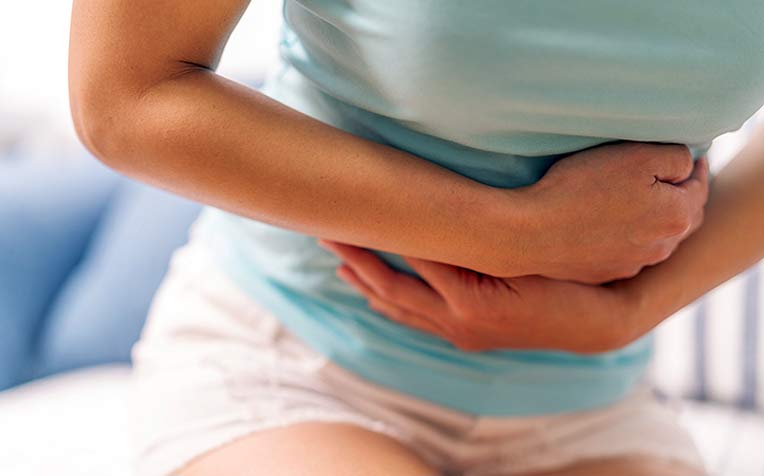
For many women, heavy menstrual flow is a typical complaint, although some experience prolonged, irregular, infrequent or erratic periods. Having the period can also be accompanied by stomach cramps or pain, mood swings, vomiting, diarrhoea, lethargy, bloating, weight gain or even food cravings.
Associate Professor Yong Tze Tein, Head and Senior Consultant at the
Department of Obstetrics and Gynaecology,
Singapore General Hospital (SGH), a member of the
SingHealth group, shares more about what menstrual problems mean. (iStock photo)
"Period problems typically occur in the very young or old," says Assoc Prof Yong Tze Tein.
"For girls who have begun menstruating, it's almost like a new factory starting to get into production. They may initially have irregular cycles that usually improve when the 'factory' gets more efficient. Sometimes, they may get period pain which lessens as they grow older."
When they reach their late 30s, women become more prone to growths in the womb and/or the ovaries. They may develop fibroids, which are solid benign tumours that grow from the muscle of the womb; or adenomyosis which occurs when the lining of the womb infiltrates its muscular wall. Endometriotic cysts, or blood cysts, are thought to result from the reversed flow of the menstrual blood through the fallopian tube into the pelvic cavity and ovaries. Fibroids are more common, with one in five women likely to have it at some point, adds Assoc Prof Yong.
Related article:
Endometriosis and fertility, is there a link?
Women in their late 40s or early 50s often experience irregular, heavy or prolonged periods, or spotting in between periods, as a result of hormonal changes brought about by impending menopause.
Some women may lose so much blood that they become anaemic. "They are usually in their 40s, but don't think about seeing a doctor. Instead, they wear two or more (sanitary) pads or even disposable baby diapers, and use a plastic sheet on their bed to avoid staining. But they may lose so much blood that they end up needing a blood transfusion," explains Assoc Prof Yong.
Doctors usually prescribe drugs to reduce the blood flow, or painkillers for pain if sufferers are found to have little or no problem. But if they are found to have fibroids or cysts, an operation to remove them is likely to be an option.
| Teens |
May experience irregular cycles or pain |
|
30s |
May be prone to growths in the womb or ovaries, which can result in heavy bleeding or pain |
|
40s |
May develop fibroids or cysts which can result in heavy bleeding |
|
Late 40s / Early 50s |
May experience irregular, heavy or prolonged periods, or spotting in between periods |
Related article:
11 Signs of severe PMS (premenstrual dysphoric disorder)
Treatment for heavy periods
The average uterus has a diameter of about 60mm – about the size of an egg – but it can become enlarged by fibroids or cysts. This causes very heavy periods.
Currently, there are various treatment options to manage heavy periods. Mirena – an intrauterine contraceptive device that releases progestogen, a hormone that makes the lining of the womb thinner and bleeding lighter – is one such treatment. It is the first line of treatment for heavy periods, says Assoc Prof Yong.
"Adenomyosis and fibroids are benign conditions. If you have an enlarged uterus but a normal period, there is no need to have any treatment," Assoc Prof Yong explains. "But women shouldn't suffer from their periods. If they have heavy or painful periods, they should seek treatment," she added.
Related article:
Heavy periods – When you should see a doctor
--
Articles on
HealthXchange.sg are meant for informational purposes only and cannot replace professional surgical, medical or health advice, examination, diagnosis or treatment.